106 DEBATES OF THE HOUSE OF ASSEMBLY FOR 1866.
WEDNESDAY, APRIL 11.
The House met pursuant to the adjournment at half-past two P. M.
MR. KERR moved the House into Committee of the Whole on a Bill to incorporate the Northern
Bank.
HON MR. SMITH then rose and said, that he had hoped to have been ready to give the reasons why
the Government had tendered their resignations, but regretted he was not yet in a
position to do so. He had just received a note from the Governor saying that he could
not give a reply to them till four or five o'clock, and as under these circumstances
it was usual to adjourn from day to day, he was compelled again to ask the indulgence
of the Houser.
MR. KERR thought that local matters could be gone on with without affecting the position of
the Government. If he imagined that anything could arise to affect them, he would
[illegible] made [illegible] motion. It would probably be three or four days before
that would be [illegible] take up any business of general interest, but in the meantime
he should like the local business to be transacted.
MR. FISHER said they should remem
ber that the request for adjournment came from the Government, and though he felt
the necessity of proceeding with the local business yet he could not feel it his duty
to proceed against their motion. He did not look for the effect the going on might
have on the past or present, but on the future, and as it was usual to adjourn, he
was in favor of allowing the Government time to conclude their correspondence.
MR. BOYD said, as the House had heard from the Attorney General that the Governor had not
yet returned an answer to their resignation, it was their duty to adjourn in compliance
with the request of the Government.
MR. SUTTON could see no reasonable objection to the House proceeding with local business whilst
the correspon dence between the Government and the Governor was pending.
HON. MR. SMITH reiterated that it was usual to adjourn the House from day to day under such circumstances
as the Government were now placed, but it was in the hands of the House to adjourn
or go on, as they saw fit.
MR. GILBERT said this Province was not a Crown Colony, but was ruled by a Government responsible
to the people, and exigencies having arisen to cause the Government to tender their
resignation, and a reply to the same not having been yet received, he though the House
must adjourn in compliance with the request of the Attorney General. The difficulty
would be to distinguish between general and local business, or where the line should
be drawn. Under responsible and departmental Government all business transacted by
this House must be considered as affecting the general interests of the Province,
and although business might be retarded for a few days by the adjournment, yet a precedent
must be established that the Government must be in a working condition for the business
to be constitutional, and he should, therefore, support the motion for adjournment.
MR. THOMPSON said they knew what the rules of the British Government were on this point, and though
time was lost, yet it enabled the members to know exactly how matters stood. He wanted
to go on constitutionally, manly and fairly, and to see the principles established
carried out. A change was made in our Constitution about fifteen years ago, by those
who he believed were seeking office, yet having now a responsible Government, or having
had it up to within the past few days, he thought the House should adjourn, or they
would be like a balloon with the cords cut, and go up God knows where. To proceed
constitutionally required time, and as the Attorney General had asked for an adjournment
they should do so and save the trouble and bother that would otherwise arise. The
hon. member for York (Mr. Fisher) was one of the framers of the plan of departmental
Government, and he did not want to see him like a child with a card house, up foot
and knock down all his work. He was little of a politician, and had taken up very
little of the time given to talking, but rather to listening,
and had only spoken now to jog the memory of the hon, member for York, as they all
knew the least drop was sometimes sufficient to stimulate.
MR. ANGLIN said it was always the case under circumstances like the present to adjourn from
day to day. He did not like this lounging about, not at work, yet he believed that
a number of hon. members had been hard at work during the past few days, and they
looked as though they had heavy care upon their minds. The Government might be considered
in a moribund condition, and as the hon. member, the late head of the Opposition,
but who now, he supposed, he must address as the hon. member for York, would naturally
be very busy, he thought time should be given those forming a new administration to
mature their plans, and as under the circumstances it could not be expected that the
members of the moribund Government, as well as the leading members of the Opposition,
would be able to be in their seats, there would be very few to discuss the questions
that came before them, if they should decide to go on with Bills of a local character.
Under such circumstances, matters might be brought before the House of great importance,
and carried without the knowledge of many of the members. The hon. member for Charlotte
(Mr. Thompson) had spoken of Responsible Government as a balloon with its cords cut,
and gone off, no one knows where, but he rather regarded it as gone up and collapsed.
HON. MR. HATHEWAY said the
Provincial Secretary was away attending the supposed death-bed of his father, and
as soon as the memorandum had been sent to and received from him, the Government had
laid their resignations before the Governor. Time must be given to prepare the reply,
and the Government was not to blame for any delay. His hon. friend from Northumberland
(Mr. Kerr) had never been a member of a Government. If he had, he would not find it
so very comfortable.
MR. WILMOT said the delay was first charged to the Opposition, and then to the Government. He
had been in many Governments, and had resigned three times. The last time it took
from January till April to get a reply accepting it, and now the question was, how
long would it take by the rate of proportion to get a reply to the resignation of
eight men ? He did not understand his hon colleague's (Mr. Anglin) reference to the
time required by what he had termed the " late Opposition," but he could assure his
hon. friend and the House that, so far as he was concerned, he was ready to go on
with the business.
MR. L. P. W. DESBRISAY would endorse the sentiments of the hon. member for St. John, (Mr. Wilmot), and further
state that there was no question of "courtesy" to the Opposition. They do not ask
for the " courtesy" of time to be granted to mature plans, and did not want it. He
came here an independent member, and when it was remembered that he came to support
the Government, said that Government had
[?] to introduce measures for the good of the country. He was not to be surprised
[?]
would leave their ranks. And now
[?]
they found they cannot go
[?] with the
business, they wanted to
[?]
HON. MR. SMITH said the country
DEBATES OF THE HOUSE OF ASSEMBLY FOR 1866. 107
would have to thank the hon. member
for Kent for defining his position, and at the same time for his gratoitous attack
upon the Government. It would be imagined that when it was known that the Government
were in the throes of dissolusion, any man possessing a heart with the least sentiment
of feeling would have refrained from any expression of reproof of condemnation. But
such an attack, be held, was ungenerous and unfeeling in the extreme. They did not
ask for a suspension of business on their own ac- account, but only that the business
of the country might be carried on according to the principles which had been laid
down and accepted.
Mr,. FISHER said that everything was
passing along smoothly and pleasantly, but the hon. member for St. John (Mr. Anglin)
had thrown a firebrand into the discussion, and called forth the remarks of the hon.
member for Kent.
Mr. ANGLIN was not aware that he
had thrown any firebrand, and if the hon. member for Kent did not know anything about
the time required to get together and form a new Government, he should have refrained
from making the remarks he had. He said that it was only courtesy to the retiring
Government and to the Opposition, to adjourn, that they might have time, on the one
hand, to obtain their reply, and on the other to mature new plans.
Mr. HILL said he should like to see
the business go on, but it was patent to all, that all might be done would amount
to nothing. The House would probably be adjourned, prorogued or dissolved this week,
and there would be no time to Bills which might pass the House, to be got through
the Legislative Council.
Mr. FRASER said this was not only
the case, but the business would not be constitutional. The Governor was at the present
time without advisers, and consequently the House could not go on with the business
of the country.
Mr. NEEDHAM said he had no doubt
of the unconstitutionality of the House proceeding with business, and should move
that the House adjourn til to-morrow at half-past two P.M.
Mr. KERR said he did not wish to go
on if any reasonable objection could be shown. There was a precedent in the matter,
for on the 28th of October, 1865, the House passed the address and on the 30th went
in a body to Government House. On the 31st met and proceeded with business without
adjournment till Mr. Ritchie came down and announced that a new Government was formed,
and writes issued for a new election. The House was then prorogued. If this was
the case, then why could not business go on now. This, he believed, was the only precedent,
and business was carried on from day to day. He did not wish, however, to act discourteously
to the Government, but as the Bill he had introduced was entirely local, he could
not see how it could in any way embarrass or affect them.
HON. Mr. HATHEWAY said the posi
tion of affairs was different now from that referred to. On that occasion Mr. Ritchie
came to the House and announced the resignation of the Government, and that the Governor
had called upon others to carry on the business. No such communication had been made
now.
Mr. WILMOT said he was a member
of the Government, and he thought it
was a case in point.
Mr. FISHER, said he went to Government House on that one aion, and they were two days ferating
the new administration, and when Mr. Ritchie came to the house the new members had
been sworn in. He hoped the hon. member for Northumberland would withdraw his motion
and allow the House to adjourn. Mr. KERR complied, and the House then adjourned til
to-morrow, at half- past two P.M.
J. March.


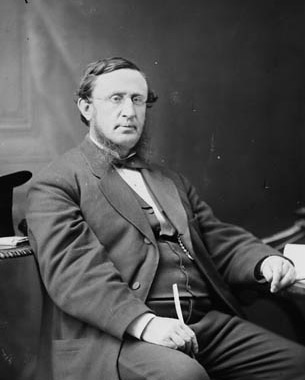
 Cet individu a participé aux :
Cet individu a participé aux :
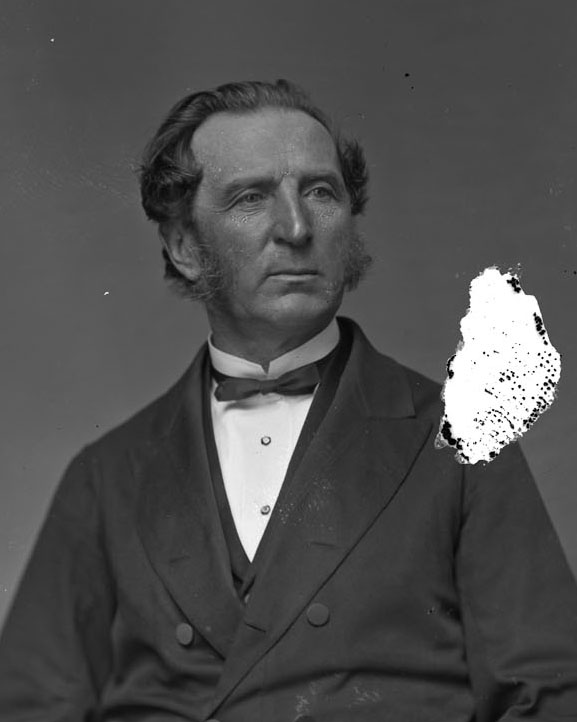
 Fisher,
Charles
Wellington
Fisher,
Charles
Wellington
 Cet individu a participé aux :
Cet individu a participé aux :
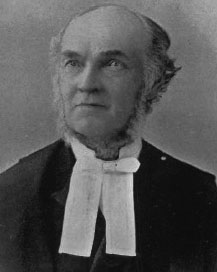
 Cet individu a participé aux :
Cet individu a participé aux :

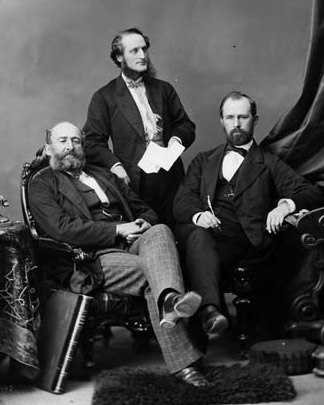
 Cet individu a participé aux :
Cet individu a participé aux :
 Cet individu a participé aux :
Cet individu a participé aux :
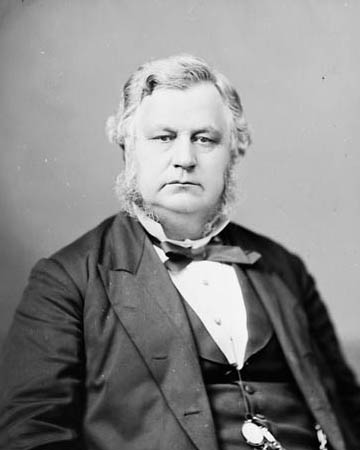
 Cet individu a participé aux :
Cet individu a participé aux :
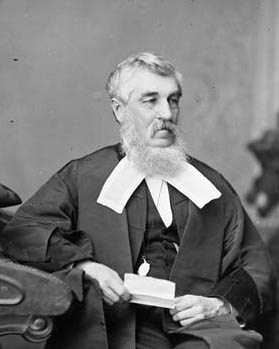
 Cet individu a participé aux :
Cet individu a participé aux :